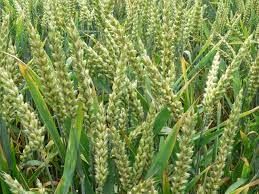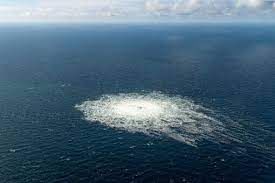UPSC Daily Current Affairs - 10th February 2023 | Current Affairs & Hindu Analysis: Daily, Weekly & Monthly PDF Download
| Table of contents |

|
| GS-I |

|
| Performance details |

|
| GS-II |

|
| Why the Nord Stream pipeline is so much in news? |

|
| GS-III |

|
GS-I
What is Kalbeliya Dance?
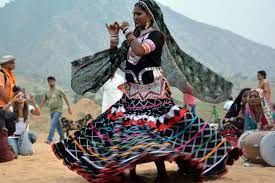
Context
This newscard is an excerpt from an article detailing about well-known Kalbeliya dancer Suwa Devi from Rajasthan.
What is Kalbeliya Dance?
- Kalbeliya Dance is a traditional Indian dance form that originated in the state of Rajasthan.
- It is a vibrant, energetic dance that is performed by members of the Kalbeliya, a nomadic tribe of snake charmers in Rajasthan.
- It is a highly sensuous dance, with the dancers performing intricate footwork and swaying movement of their arms and body.
- In 2010, the Kalbelia folk songs and dances of Rajasthan were declared a part of its Intangible Heritage List by the UNESCO.
Performance details
- The dancers are women in flowing black skirts who dance and twirl, replicating the movements of a serpent.
- They wear an upper body cloth called an angrakhi and a headcloth known as the odhani; the lower body cloth is called a lehenga.
- All these clothes are of mixed red and black hues and embroidered.
- The male participants play musical instruments, such as the ‘pungi’, the dufli, been, the khanjari – a percussion instrument, morchang, khuralio and the dholak to create the rhythm on which the dancers perform.
- The dancers are tattooed in traditional designs and wear jewelry and garments richly embroidered with small mirrors and silver threads.
- As the performance progresses, the rhythm becomes faster and faster and so does the dance.
Features of the Kalbeliya Dance
- Rapid footwork: The fast, intricate footwork of the Kalbeliya dance is the highlight of this folk dance. The dancers move their feet in quick, sharp movements that form intricate patterns on the floor.
- Swirling skirts: The colorful skirts of the female dancers swirl gracefully as they move, adding to the beauty of the dance.
- Hand and arm movements: The dancers use their hands and arms to create graceful, fluid movements that are integral to the dance.
- Singing: Kalbeliya dancers often sing along to the music as they dance, adding to the atmosphere of the performance.
- Cymbals and drums: Traditional Kalbeliya music is accompanied by drums and cymbals, which help to create a lively, energizing atmosphere.
Source: The Hindu
Stone Age Paintings in Gurugram
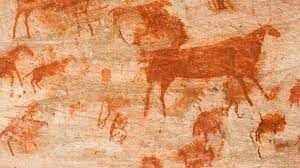
Context
Stone carvings that archaeologists say date back to the Paleolithic period or the Stone Age. have been discovered in Gurugram.
About Rakhigarhi and discoveries:
- The discovery of stone carvings has been made in the Badshahpur area of Tethar village of Sohna.
- The petroglyphs discovered in the area include hand and footprints of animals and humans engraved on quartzite rocks and graffiti.
- Most of the carvings are of animal paws and human footprints, while some are just basic symbols, which had presumably been kept for some special purpose.
Rakhigarhi
- Rakhigarhi in Haryana is the largest Harappan site in the Indian subcontinent.
- At Rakhigarhi, the excavations are being done to trace its beginnings and to study its gradual evolution from 6000 BCE (Pre-Harappan phase) to 2500 BCE.
- Rakhigarhi is an ideal candidate to believe that the beginning of the Harappan civilization took place in the Ghaggar basin in Haryana and it gradually grew from here.
Source: Times of India
Rabi Cropping Season
Context
According to data released by the Union Ministry of Agriculture and Farmers Welfare, even though farmers have surpassed last year’s acreage under wheat, the increase in sown area in the 2022-23 Rabi season has been only marginal — by 0.4 per cent.
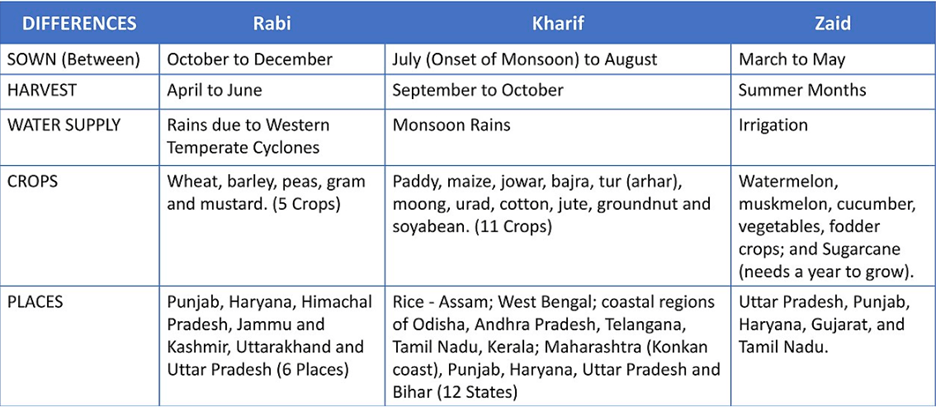
- Rabi cropping season is from October-March (winter).
- The rabi crops include wheat, barley, oats (cereals), chickpea/gram (pulses), linseed, mustard (oilseeds) etc.
- Rabi Crops are agricultural crops that are planted in the winter and harvested in the spring.
Wheat
- Wheat, which is sown and harvested during the rabi season, is one of the staple crops farmed in the nation.
- Indian wheat is largely a soft/medium-hard, medium protein, white bread wheat, somewhat similar to U.S. hard white wheat.
- Durum wheat, often known as pasta wheat or macaroni wheat is also one of the best quality wheat varieties in India.
- Climate requirement:
- wheat requires a combination of factors including cool climate with moderate rainfall, flat and well drained plain areas.
- Fertile friable loam and heavy inputs in the form of irrigation, HYV seeds, fertilizers and mechanization.
Areas of Cultivation:

- Major wheat growing states in India are Uttar Pradesh, Punjab, Haryana, Madhya Pradesh, Rajasthan, Bihar and Gujarat.
- Punjab is called as the Wheat Bowl of India emerged as the biggest wheat producer state in 2021.
Production:
- India is the second-largest producer of wheat after China with a share of around 14.14 per cent of the world’s total production in 2020.
- China, India, and Russia are the three largest individual wheat producers in the world, accounting for about 41% of the world’s total wheat production.
- India’s wheat exports are mainly to neighboring countries with Bangladesh having the largest share of more than 54 per cent in both volume and value terms in 2020-21.
Source: DownToEarth
GS-II
US bombed Nord Stream Gas Pipeline
Context
An American investigative journalist has claimed that the September 2022 bombing of the undersea Nord Stream gas pipelines was carried out by the US Central Intelligence Agency (CIA).
What is Nord Stream Pipeline?
(1) Nord Stream 1:
- Nord Stream 1 is the biggest pipeline transporting natural gas between Russia and Europe via Germany.
- It is a system of offshore natural gas pipelines running under the Baltic Sea from Russia to Germany.
- Nord Stream 1 is a 1,224 km underwater gas pipeline that runs from Vyborg in northwest Russia to Lubmin in northeastern Germany via the Baltic Sea.
(2) Nord Stream 2:
- Russian threats to choke this gas supply to Europe present an economic threat to Germany.
- To expand options and double the supply from Russia, Germany decided to build Nord Stream 2.
- The construction of the $11 billion-worth Nord Stream 2 was completed in 2021 but never began commercial operations.
Why the Nord Stream pipeline is so much in news?
- For Germany: Energy prices in Germany, Europe’s largest economy, are among the lowest in the continent because of the cheap gas supplies via Nord Stream 1. This also makes German manufactured goods more competitive in the international market.
- For European Union: In 2021, Russia supplied nearly 40 per cent of the EU’s natural gas needs through this pipeline. The flows through Nord Stream play a vital role in filling up the national storage tanks of EU. It is crucial to provide the required heating in the upcoming winter.
- For Russia: Russia is using the supplies via the crucial pipeline as a bargain to navigate its economy through sanctions from the western countries.
What is the current status of Nord Stream Pipeline?
- Nord stream pipeline is the largest single supply route for Russian gas to Europe. The Russian state owned gas company Gazprom has a majority ownership in the pipeline.
- While it was running at just 20% of its capacity since the Russia-Ukraine conflict began, the company, in early September fully cut gas flows from the pipeline on the pretext of maintenance.
- According to Bloomberg, while 40% of Europe’s pipeline gas came from Russia before Russia Ukraine the war, the number now stands at just 9%.
- Even though both pipelines were not running commercially, they had millions of cubic metres of gas stored in them.
Source: Indian Express
Modes of losing Indian Citizenship
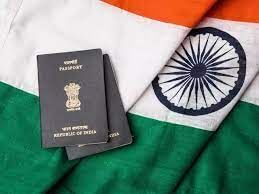
Context
Over 16 lakh Indians have renounced their Indian citizenship since 2011, including 2,25,620 people last year, the highest during the period, while the lowest of 85,256 was in 2020, according to government data.
Modes of losing Indian Citizenship:
- The Citizenship Act 1955 lays down the three modes by which an Indian citizen, whether a citizen at the commencement of the Constitution or subsequent to it, may lose their citizenship. These are,
- By Renunciation:
- An Indian Citizen of full age and capacity can renounce his Indian citizenship by making a declaration to that effect and having it registered.
- But if such a declaration is made during any war in which India is engaged, the registration shall be withheld until the Central Government otherwise directs.
- When a male person renounces his citizenship, every minor child of him ceases to be an Indian citizen.
- Such a child may, however, resume Indian citizenship if he makes a declaration to that effect within a year of his attaining full age, i.e. 18 years.
- By Termination:
- If a citizen of India voluntarily acquires citizenship of another country, then the citizenship of India gets terminated.
- This provision does not apply during times of war.
- If any question arises as to whether, when, or how any person has acquired the citizenship of another country, it is to be determined by such authority and in such manner as may be prescribed by the rules.
- By Deprivation:
- It is a compulsory termination of citizenship of India.
- A citizen of India by naturalization, registration, domicile and residence may be deprived of his citizenship by order of the Central Government if it is satisfied that:
- The citizen has obtained the citizenship by means of fraud, false representation, or concealment of any material fact;
- The citizen has shown disloyalty to the Constitution of India;
- The citizen has unlawfully traded or communicated with the enemy during a war;
- The citizen has, within five years after registration or neutralization, been imprisoned in any country for two years;
- The citizen has been ordinarily resident out of India for seven years
Source: The Hindu
GS-III
Amorphous Ice
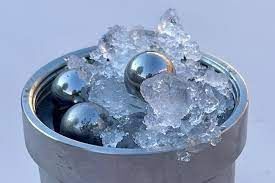
Context
Recently Scientists have created a new type of ice that matches the density and structure of water, perhaps opening a door to studying water’s mysterious properties. The ice is called medium-density amorphous ice.
About Amorphous Ice:
- The ice is called medium-density amorphous ice.
- Amorphous ice consists of water molecules arranged in a disordered state, with no large-scale regularity to their orientations or positions.
- This kind of ice is most often found in space.
- Almost all ice in the universe is amorphous and, in a form, called low-density amorphous ice.
- This forms when water condenses onto dust grains in space.
- Comets are amorphous ice as well.
- Amorphous ice’s water molecules are in a disorganized form resembling a liquid.
- This kind of ice is most often found in space.
Source: Indian Express
Asbestos
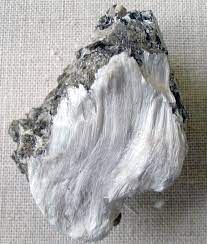
Context
Recently Brazil sinks age old aircraft carrier carrying asbestos, other toxins.
About Asbestos:
- It is a naturally occurring fibrous silicate mineral.
- Asbestos is a group of six naturally occurring minerals made up of heat-resistant fibers.
- It consists of flexible fibers resistant to heat, electricity and corrosion.
- Asbestos is an excellent electrical insulator and is highly fire-resistant, so for much of the 20th century it was very commonly used across the world as a building material.
- Construction materials contained asbestos because it is an effective insulator.
- Asbestos in cloth, paper, cement, plastic and other materials makes them stronger.
- Asbestos mainly comes from Russia, Kazakhstan and China.
- The toxic mineral was once mined throughout North America.
- Asbestos has been used on ships as both a fire retardant and an insulator to protect sailors from the constant and jarring vibrations of ships’ engines.
Health Effects
- It is known to be a highly toxic material and a carcinogen.
- Inhaled or swallowed asbestos fibers can become trapped in the respiratory or digestive systems of the body, accumulating over time.
- Repeated exposure can cause inflammation and damage the DNA.
- The following illnesses have been associated with asbestos exposure: lung cancer, COPD, mesothelioma and asbestosis.
Source: Indian Express
Small Satellite Launch Vehicle (SSLV-D2)
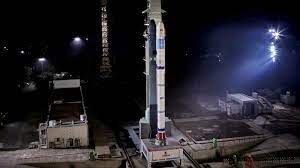
Context
The Indian Space Research Organisation (ISRO) successfully launched the second edition of the Small Satellite Launch Vehicle (SSLV-D2) from the first launch pad of Satish Dhawan space centre at Sriharikota, Andhra Pradesh.
About the Small Satellite Launch Vehicle:
- The new vehicle was developed to capture the emerging small and microsatellite commercial market.
- The SSLV caters to the launch of up to 500 kg satellites to low earth orbits on a 'launch-on-demand' basis.
- The launch vehicle uses three solid stages followed by a liquid-fuel-based Velocity Trimming Module (VTM) to place satellites in orbit
- The rocket provides low-cost access to space, offers low turn-around time and flexibility in accommodating multiple satellites, and demands minimal launch infrastructure.
- It placed the Indian Space Research Organisation (ISRO) earth observation satellite EOS-07 and two co-passenger satellites — Janus-1 and AzaadiSat2
What is Janus-1?
- Janus-1 is a technology demonstrator satellite built by United States-based Antaris and its Indian partners XDLinks and Ananth Technologies.
- It weighs only 10.2 kg and is a six-unit cube satellite with five payloads on board — two from Singapore, and one each from Kenya, Australia, and Indonesia.
What is AzaadiSat2?
- The payloads have been built by 750 girl students from across India.
- The payloads include: LoRa amateur radio, a sensor to measure radiation levels in space, and sensors to measure the health of the satellite such as temperature, reset count, and inertial data.
Source: Indian Express
|
38 videos|5293 docs|1118 tests
|
FAQs on UPSC Daily Current Affairs - 10th February 2023 - Current Affairs & Hindu Analysis: Daily, Weekly & Monthly
| 1. What are the three main sections of the UPSC exam? |  |
| 2. What is the significance of General Studies Paper II in the UPSC exam? |  |
| 3. What does the GS-III section of the UPSC exam cover? |  |
| 4. How can I prepare for the General Studies Paper I of the UPSC exam? |  |
| 5. What is the role of current affairs in the UPSC exam? |  |

